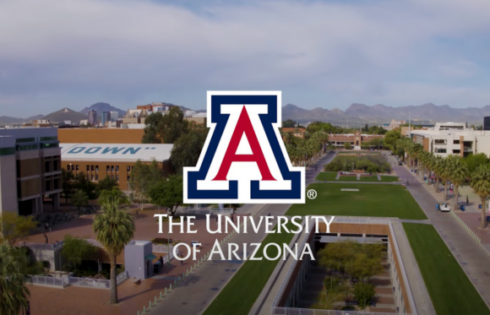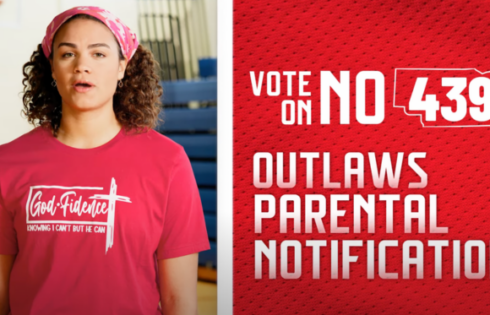Swarthmore College is a beautiful place, full of genuinely curious, quirky, often gifted students. But, to my knowledge, there are very few politically centrist professors–and certainly none who are openly conservative. This irked me freshman year, but I was confident I could start a campus group and earn the support of faculty, who shouted their purported “open-mindedness” from the academic buildings’ rooftops.
Back in 1890, the Quakers who founded Swarthmore entered a cantankerous discussion: Would permitting a piano on campus enhance the liberal arts or violate religious modesty? As you might guess, the pianists won out. Sadly, this looks to have been a far noisier debate than the college’s current single-minded liberalism allows.
Sure, there are protests here. Lots of them. Students regularly beat drums to the rhythm of each moment’s progressive cause: universal living wages, the Arab Spring, banning coal or even boycotting particularly “problematic” brands of hummus. These days, the problem isn’t so much the decibel level from the Left as it is the silencing of the Right.
The Peace and Conflict Studies program threw its name –and financial resources–behind hosting Norman Finkelstein, the vehemently pro-Palestinian activist who accuses Israel of exploiting the “Holocaust Industry.” Meanwhile, the History Department hasn’t offered a course on the American Founding in years.
Fast forward a few months. The conservative group fliers I’d designed–and paid for, since I felt guilty about using the library ink–were removed and replaced with parodies. My ads made use of Bill Clinton’s 1992 campaign slogan, “It’s the economy, stupid.” The mock ads–purposely rendered to look eerily similar to mine–featured taglines about taking away people’s housing and healthcare. Suddenly I sounded like the humanity-hating conservative cartoon college liberals imagine–because they’d replaced my words and inserted their own, imagined speech bubbles!
I notified the administration, who, to their credit, supported my right to found a conservative club. They pointed out that the students, not the faculty, were the bad actors in this episode. Technically they were right, but I’d argue that it’s the professors–in what they say, write and assign–who set the broader tone and agenda.
Take this example, from last autumn, before the Occupy Wall Street protests fizzled. A neighboring Bryn Mawr College professor circulated a petition which “urge[d] the City of Philadelphia to continue its good-faith engagement with the Occupy movement, to honor and extend the permit it has granted for peaceful protest at City Hall, and to ensure that the arrested members of the movement are given just due process.” Thirty Swarthmore professors added their names, calling upon the “repeal of corporate welfare,” “healthcare for all,” and “an end to U.S. military deployments in Iraq and Afghanistan and U.S. military imperialism around the globe.” I wish my English professors would just stick to teaching poetry. Professors have forwarded me invites for Democratic campaign events in their homes. I appreciate email from my teachers, but that feels downright solicitous.
Fortunately, if the number of students who grabbed pocket-sized Declarations of Independence at the most recent activities fair are any indication, things have gotten better with time. There are now several libertarian or conservative columnists who write for our two newspapers, and the group I co-founded, the Swarthmore Conservatives, finally has enough members to stir the campus pot. My friend, who interned with the Romney Campaign in Boston, admitted to his comparative politics seminar what he’d been up to this summer. He’s still alive to tell the tale.
Over the past year the Swarthmore Conservatives have invited two Cato Institute scholars for campus lectures. Climatologist Patrick Michaels offered an alternative take on the science of global warming, while Robert Levy discussed different lenses for interpreting the Constitution. The Michaels presentation brought mostly a crowd of environmental protesters, whose signage suggested the Cato Institute is in the pockets of Big Oil. Apparently even one person who doesn’t sponsor climate alarmism is too many at Swarthmore. Mr. Levy, himself the organizer behind the Supreme Court’s landmark D.C. v. Heller case on the Second Amendment, gave an excellent, informative talk. Sadly, no one from the Political Science Department showed up.
Conservatives, libertarians and moderates have a long way to go at Swarthmore, but, believe it or not, I hear more and more speaking up. I took part in an impromptu conversation of the merits of James Madison versus Alexander Hamilton the other night. Later in the week, a classmate and I shared a giddy moment as we talked about the ethical implications of Aristotle in the library common area. My Resident Assistant decorated our all-female hall with various inspiring faces. Hillary Clinton and Michelle Obama are featured. So are Margaret Thatcher and Condoleezza Rice.
My freshman year “diversity workshop” featured the type of multiculturalist guilt-tripping for which contemporary college orientations are now famous. Yet the next year marked a turning-point. I volunteered to conduct a workshop in the hopes of making incoming students feel a bit more at home than I did. I was pleasantly surprised that one of the deans had a similar goal in mind. He circulated a quotation by Robert DuPlessis, a professor emeritus of history: “Only by encountering and attempting to comprehend the origins, assumptions and logics of perspectives that are different from—even repellent to—our own, can we adequately understand our own convictions. True learning, in short, requires broad exposure along as many parameters as possible. This type of ‘deep’ diversity is not politically correct but educationally mandatory.”
Professor Duplessis’ remarks became a bit of a rallying-cry for my workshop discussion and, further, my own credo for liberty-styled education. There are very few Quakers left at Swarthmore College. But I promise, the music of political pluralism can be sweet.
Correction: A previous version of this article stated that the department chair of the Peace and Conflict Studies program said he “wasn’t interested” in a film screening about Ronald Reagan. In fact, the program was willing to sponsor the documentary.
Fix Contributor Danielle Charette is a student at Swarthmore College.
Click here to Like The College Fix on Facebook.
IMAGE: Tolka Rover/Flickr




Please join the conversation about our stories on Facebook, Twitter, Instagram, Reddit, MeWe, Rumble, Gab, Minds and Gettr.